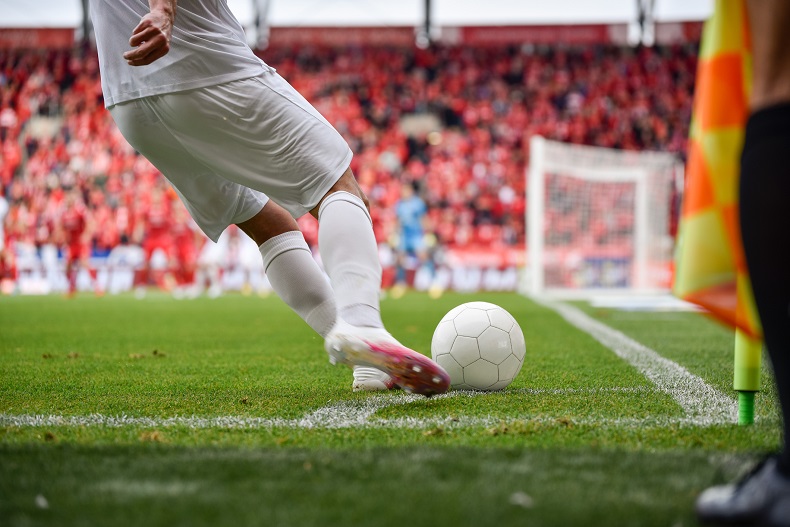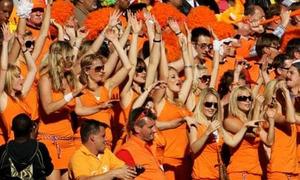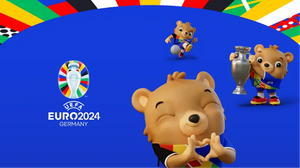Euro 2024 and IP – a match made in footy heaven
Football fever is sweeping across the UK, from the adverts we watch on TV, see on our travels, fantasy football leagues and of course social media.

This competition has historically been a brand explosion in terms of wanting to obtain exposure and in turn increase sales.
I for one am hoping that the England team don’t crash out the competition on penalties!
We have had a hyped build up to the Euros, with the England and Scottish team selection being talked about on a large scale, with some high profile players (with hefty brand clout) being left out.
The British Retail Consortium have predicted that Euro 2024 will likely give retailers a much needed spending boost, which in turn will increase brand reach:
Kris Hamer, Director of Insight at British Retail Consortium (June 2024)
“British retailers could score a hat-trick, with boosts to groceries, electronics and official merchandise. After sluggish spring sales, shoppers are expected to kick off their summer spending at the Euros. Here’s hoping England and Scotland can make it all the way to the final”.
UEFA are the official sporting body responsible for the organisation and running of Euro 2024 and Germany is this event’s host country.
For those interested in football facts, Germany has won the competition three times, so let’s see if the hosts can win again this year.
The UEFA website is full of fun facts on players and past competitions but what is also noticeable is the logos being displayed of the official global sponsors, such as Adidas, LIDL and Booking.com, amongst others, which typifies sporting events such as these and the brands they attract.
It is no surprise that UEFA (Union des Associations Européennes de Football) has a large budget for brand protection.
A flavour of what has been protected as EU trade marks is below, with protection being sought as early as 2012.
There is much foreplaning with trade marks such as the below, as sometimes they can hit a hurdle on absolute grounds and receive different treatment at the examination stages by different IP Offices. The below have been accepted by the EUIPO:
EURO 2024
EURO 2024 GERMANY
UEFA EURO 2024
It is crucial for UEFA to fully protect the tournament every time it occurs, not least for financial stability to be able to stage and produce a major tournament, and have a rigorous brand protection strategy in place, given the lucrative endorsements and licences that it enters into with global brands for large sums of money.
It has to ensure that third parties cannot use the trade marks in a way which would create an official association with UEFA, hence the term “official sponsor” and so forth.
The context for how UEFA approaches IP rights can be found in the lengthy Regulations of the UEFA European Football Championship under Article 11, which states an enforcement date of 3 May 2024:
11.01
UEFA is the exclusive owner of all intellectual property rights of the competition, including any current or future rights in all types of audio and visual material of the competition, names, logos, visual identities, brands, music, mascots, medals, plaques, commemorative items, trophies and certain key elements of the official match ball design. Any use of the aforementioned rights, any imitation and/or variation thereof and any other reference to the competition (such as by associating the name of an association with the date of a match) requires the prior written approval of UEFA and must comply with any conditions imposed by UEFA.
11.02
All rights to the fixture list and match schedule, as well as any data and statistics (including databases in which such data is stored) in relation to the matches of and players’ participation in the competition are the sole and exclusive property of UEFA. No tickets or accreditation may be used by anyone in order to gain access to a venue for the purposes of collecting or gathering such data, and such activities are expressly prohibited. The foregoing prohibition does not apply to the participating associations, subject to any and all such data collected being used solely for the purposes of instructing their team, players and officials and expressly excluding any other exploitation or use whatsoever.
The regulations also reference commercial rights (general) and also commercial rights to the final tournament, which covers clauses such as the below which places emphasis on host associations:
64.03
The host associations shall ensure that, as a minimum, their ticketing and media accreditation terms and conditions for the matches stipulate that:
- no person may conduct any promotional or commercial activity at the match stadium, without the prior written approval of UEFA;
- tickets must not be used for any commercial purposes such as for promotion, advertising, use as a prize in a competition/sweepstake, or as part of a hospitality or travel package without the prior written approval of UEFA;
- all people attending the match acknowledge that use may be made (free of charge) of their voice, image and/or likeness in still images and audio/visual transmissions relating to the match;
- no person attending the match may, without UEFA’s prior written approval, collect, record, transmit and/or exploit any sound, image, data, statistics and/or description of the match for any purpose other than for private use.
So as you can see from the above, UEFA are very clear on what is acceptable and not with respect the tournament and their brands. This all forms part of their brand protection strategy, of which trade marks are the corner stone.
A key consideration for UEFA and also national footballing teams/associations will be ambush marketing, which is where a company has a marketing strategy in which they “ambush” an event to compete for exposure against another advertiser.
Sport events such as the Euros (but also Superbowl, Olympic Games) are rife for this type of marketing because of the audience figures and potential gains.
The issue is that it devalues and dilutes sponsorship agreements in place and defeats the point of being an official sponsor, not to mention infringing the IP of the organising body.
A good example of foresight was the London Olympic and Paralympic Games Act 2006 which was prior to the Olympics 2012 which provided additional protection on top of existing laws and tried to further stop association with the Games if not authorised.
An example of “Ambush marketing” was Bavaria Beer company from the 2010 FIFA World Cup.

We also cannot discuss a sporting competition without introducing the official mascot, who is also generally subject to trade mark and design protection, not to mention being a fun part of the event and key to merchandising sales to children and grown ups alike.
Some of you may remember Perry, who was the bull mascot for Birmingham 2022 Commonwealth Games. For Euro 2024, the official mascot is Albart who is a teddy bear and I suspect will be the subject of brand surveillance, to ensure that all teddy bears sold are official and not counterfeit items.
With respect to counterfeiting and to highlight the issue for sport in general, Operation Fake Star which is an initiative led by Spanish and Greek police forces (under Europol and with participation from 18 countries) reported that sport and luxury goods were the most seized goods.

So all in all, this football event throws up a wide range of trade mark and design issues, and these are issues for UEFA but also every country participating in the event and the governing bodies (English Football Association for example) and their own national emblems also, such as the England football shirt for example and the three lion crest.
It will be interesting to see how far boundaries are tested and what campaigns fall the right or wrong side of IP law and the approach UEFA will take to enforcement and whether that engages the public in a positive way.
My only remaining remark is, COME ON ENGLAND!


